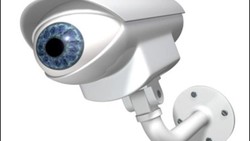webp is a fine format, blame the websites that disallow webp upload, but then proceed to convert the image to webp anyway
< Insert XKCD comic strip about new standards here >
Cloudflare zero trust apps allow webp images on initial creation, then arbitrarily disallow webp on edit. You can’t edit until you replace the image you already uploaded, and the system accepted.
My favorite are sites that convert gifs to mp4s that are then displayed as animated webps.
I blame Google for killing JPEG XL in favor of webp
wdym “terrible quality loss”; for one their lossless beats PNG
They had a better joke, but they converted it to a Webp and lost the punchline.
This depends, if your image contains a lot of flat colours (like a screenshot of a website) then PNG can actually give you smaller file sizes than lossless webp. But for most images (especially ones with compression artefacts) lossless webp gives smaller sizes.
But that’s not got anything to do with quality. That’s compression size
Lossless encoding, by definition, won’t have any quality loss.
Watch some startup “invent” a revolutionary lossless format that discards some information.
Fuuuuuck. There goes another business idea. 😂
did that ages ago
That’s the point of revolution, no?
Going back to something that was in the past, except giving it a new name and context:P
Huh? The OP literally said “their lossless beats png” and then you proceeded to talk about file size which wasn’t ever part of the conversation. The conversation was about quality.
deleted by creator
But for most images (especially ones with compression artefacts) lossless webp gives smaller sizes.
And if you already have compression artifacts, what use is lossless?
Only time you would want it is when you are uploading comparison photos specifically showing compression artifacts created from some other compression result.
That’s a bit to niche to make it worthwhile.And if you already have compression artifacts, what use is lossless?
To further reduce file size without further reducing quality.
There are probably billions of jpeg files out there in the world already encoded in lossy JPEG, with no corresponding higher quality version actually available (e.g., the camera that captures the image and immediately saves it as JPEG). We shouldn’t simply accept that those file sizes are going to forever be stuck, and can think through codecs that further compress the file size losslessly from there.
Wait, so lossless webp manages to be smaller than even lossy jpg, while also having to losslessly reproduce jpeg artifacts, which tends to otherwise greatly increase file sizes (as compared to the original lossless file) in lossless formats?
JPEG XL has a mode for losslessly encoding any lossy JPEG into a smaller file size without any loss of quality. Wikipedia has some description of general approaches for losslessly encoding JPEG files further.
I don’t know if webp uses any of these tricks, but I don’t see why it would be hard to imagine that compression artifacts from a 30-year-old format can be encoded more efficiently today.
deleted by creator
Lossless is fine, lossy is worse than JPEG.
If someone chooses lossy they deserve whatever torture they receive.
Unfortunately most people don’t really have a choice in the matter. It’s sites like twitter that crunch images to hell and back on upload that choose for us.
Choose life don’t use webbed sites that use lossy webps
Webp is good and this meme is shit and played out
its interesting to me that this is only really an issue on proprietary OS’s (mac/windows) as i’ve never had an issue with any image or video formats when using linux. i use all three but linux is my primary OS. mac/windows mostly stay at work.
I grew up on macOS, until a few years ago where I actually had my own personal computer for the first time, which had windows pre installed, so i used that and like it a lot more than macOS, i just felt so much more free, and the general workflow felt more intuitive to me, then, early this year, i switched to Linux and there’s no way in hell I’ll ever go back. In just a couple months I learned more about how computers worked than I did over something like 12 years of using computers as a teen. It’s really crazy to me how once you get something set up on Linux, it just works, and all of the documentation is open and detailed!
While all of that is true, the thing is that most people just don’t care. They just use two or three programs (poorly) and don’t really care about the underlying system, never mind the computer. That’s why windows is so entrenched.
Windows is mostly so entrenched because Microsoft applied monopolistic practices in the 90’s to ensure it was the most used operating system thereby cementing their place for decades to come.
Then, they applied monopolistic practices in the cloud industry to ensure vendor lock-in at the OS level with their most popular services (like Office).
You are right that most people just don’t care though. I don’t blame them, there is enough stress in the world.
Os X has supported webp for years.
yeah macOS supports webp now (since ~2020), but it lacked support for a decade, causing frustration for its users and anyone trying to support macOS/Safari.
OS doesn’t affect what web servers accept webp, which is 90% of the use case for most people. The vast majority of people use computers as a web browser only
That’s true, but its not always about the server, people tend to download images/memes/etc with the intent to edit/share. If you were on macos and happened to download a webp image in the 10 years that Apple didn’t support them, you were in for some googling and/or frustration.
DAT and DDC were great as well. Beta too. But sometimes good enough (like JPG and VHS) is good enough.
Yeah, let’s stick with obsolete (JPEG) formats, so no one needs to improve their loaders (very hard), and people can continue to use that funny video editor that came with some old version of Windows without converters (very evil, Irfanview does not have the same meme potential as WinRAR).
betacam was better than vhs, and was used in the broadcasting industry. It was better than vhs.
Betamax, which is the one you’re talking about, is not the same format, and actually equal to or slightly inferior to vhs.
I know what Betamax is.
That’s not actually true. Technology connections made a few videos about it.
Beta bs VHS: https://youtu.be/hWl9Wux7iVY
The broadcasting Beta format was basically a whole different format compared to that you could get at home. Completely unrelated.
Studio Beta https://youtu.be/hGVVAQVdEOs
isn’t that exactly what i said? Betacam (studio) vs betamax (consumer)
JPG-XL crying in the corner.
If Jpeg-XL was backwards compatible with older clients, it would probably take off. Like if the format embedded a standard jpeg image in the front readable by older clients, and then enhanced it with additional data at end of file readable by Jpeg-XL clients.
That’d just be overall worse, it’d never be smaller than a comparable JPEG image, and it wouldn’t allow for any compression/quality benefits.
You could compress the hell out of the traditional jpeg codec/layer part of the image. It’d be there for backwards compatibility. It only has to be readable by older clients and “acceptable” quality.
See “49kb” example here — totally acceptable image quality for backwards compatibility.
Sitting next to JPEG-2000
> complains about lossy format
> meme uses lossless imageAm disappoint
To be clear, webp isn’t even a lossy format. I mean, it can be, but it can also be lossless.
Quality loss? Webp supports lossless.
So does JPEG. It doesn’t mean that people (will) use it for that.
Actually? I didnt know that. Is it used often? Any downsides ?
Practically never because it’s rubbish. The only possible use is on old precision machines that don’t support newer standards, like medical imaging.
I really don’t get the WebP hate, it’s a good format. It’s better than PNG and JPG.
Though you couldn’t set the bar any lower without it turning into a joke.
Anyhow, to quote Wikipedia:
Comparing different encodings (JPEG, x264, and WebP) of a reference image, she stated that the quality of the WebP-encoded result was the worst of the three, mostly because of blurriness on the image. […] In October 2013, Josh Aas from Mozilla Research published a comprehensive study of current lossy encoding techniques and was not able to conclude that WebP outperformed JPEG by any significant margin
All while having significantly increased complexity. The blurriness problem was inherited from the video codec webp was based on. When you can’t beat an 18 years old format, don’t be surprised when people get irritated when you use your position to get it mandated into a standard, while later stalling actual improvements (JPEG XL).
Is JXL in actual use? Is it supported? I reckon it’s quite new, innit? D’you happen to.know how it compares to its peers?
It’s not supported by either Chromium or Firefox, which is part of the issue (Google basically decided against it with arguments that are much better suited against WebP, which they pushed some years ago).
There aren’t that many static image codec comparisons, for example there is https://giannirosato.com/blog/post/image-comparison/. https://afontenot.github.io/image-formats-comparison/ doesn’t even include WebP because the test suite uses features unsupported by it (YUV 4:4:4). In the ones I do find, WebP usually wins against good JPEG at low bitrates, but loses on high bitrates because of the blurriness issue. They both get beaten by JPEG XL and AVIF. Which one is better probably depends on whom you ask. The before linked comparison prefers JPEG XL by a slim margin, https://tonisagrista.com/blog/2023/jpegxl-vs-avif/ strongly favors JPEG XL.
JPEG-XL exists, is factually better, and is not patent encumbered.
How is WebP “patent encumbered”? It’s an open format.
Open is not the same as patent-free, the two things can coexist (and they do in the case of webp).
It’s open to write the code, but in order to be authorized to use it you have to get a permit from Google. You can’t eg.: fork from Firefox and use their permit (as you implicitly could with patent-free). Plus, Google can rescind their patent grant at any point, which they are bound to do once they secure ownership of the internet.
That’s just not true.
Thanks for taking the time to disprove this
That’s still not patent free. Heck it’s right there: “irrevocable (unless we say so)”.
I didn’t say it was patent free, and the text doesn’t say “unless we say so”. It explicitly says the only way the patent grants can be revoked is if you enter patent litigation or enforcement regarding this code.
If you or your agent or exclusive licensee institute or order or agree to the institution of patent litigation or any other patent enforcement activity against any entity (including a cross-claim or counterclaim in a lawsuit) alleging that any of these implementations of WebM or any code incorporated within any of these implementations of WebM constitutes direct or contributory patent infringement, or inducement of patent infringement, then any patent rights granted to you under this License for these implementations of WebM shall terminate as of the date such litigation is filed.
That is still a problem, but what I was responding to:
It’s open to write the code, but in order to be authorized to use it you have to get a permit from Google. You can’t eg.: fork from Firefox and use their permit (as you implicitly could with patent-free). Plus, Google can rescind their patent grant at any point, which they are bound to do once they secure ownership of the internet.
is just wrong.
I have no problem with calling out Google’s anticompetitive behaviors, even in this case, but don’t lie about it.
Yes, but that is actually almost “incompatible with every app and website”
A file format can not, by itself, be “incompatible” with a website. What matters is the browser, and Firefox at least is adding support (slowly), and they are the ones who matter ATM.
does jpeg xl support animated images?
It does, yes, but from what I gather it’s rather difficult to actually encode such an animated image compared to, say, a GIF. Display should work just fine.
It’s just tech illiterate being “oh no my image program not open this 10 year old new format”
PNG is lossless, so isn’t that like comparing apples to oranges?
Edit: Apparently webp can also be lossless. I don’t know anything.
personally:
- forced to be a thing by google
- bad-ish support in some applications or places even to this day
- always used to further reduce filesizes which means you are most of the time transcoding lossy jpgs and making them more lossy (lemmy is specially into this), which means that the alleged better quality is actually useless
jxl would make a better replacement for this last thing since you can losslessly transcody jpgs with ~20% filesize and in my testing, pngs with ~50% (though jxl lossless decoding is cpu heavy right now), lossless transcoding also means you could keep jxls in server, then give it to the client if it supports jxl, or transcode back to jpg if they don’t (this saves bandwidth and storage at the cost of some cpu usage, but jpg transcoding is really fast and you can cache highly used images)
The posting of webps will continue until support improves.
Is webps just webp with SSL ? 😏
No, it’s a new format remember?
So TLS, maybeAh right. It should be TLS, and it may be SSL for future backward compatibility, sometimes resulting in corrupted images without warning.
Webp supports lossless compression. It’s even better than .PNG in that regard.
I also have rarely found it to not work. Like the only things I can think of off the top of my head is that the basic Microsoft image viewer that comes standard on Windows won’t open them and also how some websites will force an animated .gif to be saved as a webp, making it a static image. Even though I am pretty sure webp also supports animation.
JPEG also supports lossless compression.
Does it? Paint doesn’t seem to use it. Even saving something uncompressed adds artifacts that don’t exist in the raw.
You mean the Microsoft made program?
Yeah. I would imagine a better program actually has lossless compression if the format can do that. Like I mentioned initially, their own image viewer can’t even open WebP; but using the old one from XP/Vista opens them fine. 🤷♂️
JPEG also supports lossless compression.
Technically, the spec does require it, but given that we’re in a thread about ecosystem support for a file format that’s approaching its 15th birthday, it’s worth considering how many image viewers will actually be able to work without the DCT step that is the essence of what typical JPEG does.
I don’t have a Windows machine handy to test, but it’s entirely possible that maybe lossless JPEG won’t display in its default viewer.
.webp has virtually no support when it comes to software/apps that can edit images, it’s always either a “file format not supported”, or absolutely no reaction or acknowledgement that you tried doing something
On windows maybe. Never ran into that on Linux. I understand it’s inconvenient but that’s not the format’s fault, it’s windows developers’.
Blame the software for lack of support, not the format. Webp has been around for over a decade at this point and is only growing in significance, and it’s an open source standard. No excuse for software to not support it.
What software are you using? I’m mainly using free and open source ones, they all can open it.
photoshop & davinci resolve
What - doesn’t - support webp at this point? P much all maintained open source software has for years upon years, os x has for years, Android and iOS have for ages as well, even windows added support a year ago or so supposedly.
Like are these memes made by confused time travelers?
It’s often a nightmare when sharing to chat apps to show friends memes etc
a) send links instead of polluting my storage with garbage, please
b) use Signal, it does webpFor the first point, I’m just going to throw out that sending the content can be preferable given how likely the link is to go dead eventually. There are a number of things I can no longer find because of this although it is admittedly an edge case.
Well yeah, but for memes, longevity isn’t really a priority.
It somewhat is for me, my partner takes days or weeks to click my links.
Sounds rough
Nah it’s pretty normal. You’re not always in the mood, maybe you receive a lot of content from other people as well
Well, yeah, but for memes longevity isn’t really a priority imo.
even windows added support a year ago or so supposedly
You answered your own question. I spent years playing the game of “This image is a JPEG. Will the website force me to save it in a format that can’t be opened by the basic Windows photo viewer, or will it actually be a JPEG when I download it?”
You’d be surprised how often it would turn out to be the former rather than the latter.
Windows photo viewer sucks, that’s your problem
Nomacs is a better alternative. Not perfect, but FOSS and faster than windows https://nomacs.org/
most people don’t want to install thirp party stuff for basic stuff that the system comes with
I thought most people replaced every part of Windows with something better, because none of it was very good.
Then you will never be a power user
Can’t go far with the defaults, on everything
Most people don’t want to be power users.
That’s why Lemmy will probably never be big
Discord doesn’t and a lot of other apps neither
Discord supports webp. I use it regularly.
Then is it Samsung’s flavor of android that is to blame ?
Might be, that one I can’t test, I don’t have any samsung devices.
And it’s more of a video format than an image format, lots of juicy attack surface
16 CVE’s for libjpeg just last year: https://app.opencve.io/cve/?vendor=jpeg
Sounds like avif
JXL is the rightful heir to the throne and none of these treasonous corporate usurpers in the court can convince me otherwise. I’ll never bow to the Webp or Avif factions. While it looks bleak, I pray the crown finds its way to the head of the true king. Long live the Jpeg bloodline!
But really, webp was pushed because it supports DRM and avif is an implementation detail turned feature afterthought just because webp adoption sucked as much as the format does. I love AV1 for video but avif isn’t fit for purpose and webp is garbo. I really wish they didn’t take jpegxl out behind the shed for no good reason… It has some awesome engineering.
If it gives you any hope I’m pretty sure Apple uses jpegxl for their pro mode raw compressed format. Apparently they did that change with last year’s iPhone so there’s still hope.
Keep the faith good hir knight.
AVIF is funny because they kept the worst aspects of WebP (lossy video based encoding), while removing the best (lossless mode) There was an attempt at WebP2, using AV1 and a proper lossless mode, but Google killed that off as well.
But hey, now that they’re releasing AV2 soon, we’ll eventually have an incompatible AVIF2 to deal with. Good thing they didn’t support JPEG-XL, it’d just be too confusing to have to deal with multiple formats.
WebP has all the functionality of jpg, png, and gif while still being a smaller filesize. It has baseline support across browsers and devices. I’m no Google simp and work to de-google my family and workplace but this is a hill I will die on. Webp currently the best image file format.
Webp currently the best image file format.
Out of the widely supported ones, it’s quite good, yeah. Overall, I’d say JPEG XL is the better one. Ironically, only Safari supports it out of the box. Firefox requires a Nightly version with tweaking in
about:config. Chrome used to have a feature flag, but has since removed it.The website mentions
Migrating to JPEG XL reduces storage costs because servers can store a single JPEG XL file to serve both JPEG and JPEG XL clients.
Does anyone know how that works?
I assume, decoding it on the fly? It’s possible to encode a JPEG as a JPEG XL losslessly.
I think compatibility was also being taken into account here. When not looking at compatibility, JXL is the best hands down. It’s criminal how little software supports it.
If loser companies would support it I’d say AV1 Image File Format (AVIF) is the best.
It is. The sentiment comes from majority of Americans using Apple operating systems, which refused to support WebP until recently.
For me it’s HEIF. I love it because it’s smaller and higher quality than JPEG, but literally nothing supports this format. It’s annoying that I have to convert to JPEG or PNG to do anything with my images. Luckily HEVC seems to get more support on the video end of things.
HEVC is proprietary.
AV1 is what we need. And a lot of newer hardware finally supports it.
AV1 is for video though? JPEG-XL is patent-free, better performant than most or all alternatives, and made for images.
Exactly, it seems to be common for new people to think hevc is just like avc but better. It is a format that is just a pain to work with, and is barely supported as compared to h264.
Even streaming services are sick of that format and rather use h264 or AV1.
Honestly I just don’t like how HEVC compression ends up looking. It looks like everything has had noise added and then smoothed over, and I can always see it. AV1 or AVC are also my personal pics. AV1 for filesize and AVC for compatibility.
Takes forever to encode though
Yeah, almost as long as AV1, depending upon settings.
Webp has both a lossy and lossless mode so the first part of this meme is lost on me
I guess that was the lossy part :)
| | | | | | _
I hate that Messenger doesn’t support webp. Makes sharing from Lemmy quite annoying. Signal takes webp though, no prob.
I screen shot and crop every meme i want to share from Lemmy. It is tedious.
I have a better solution that I found out by accident.
So you initiate the sharing, right, then before you select the Messenger app (or whichever app that doesn’t handle webp), you click the little edit button on the image above the shareable apps. That brings up cropping and other adjustments. But from here, you can just hit the big Share button immediately to share the image practically losslessly (without cropping mistakes and such). It brings up the share thing again but this time the image will be in a shareable format, presumably PNG(?).
Spread the word!
(This is on Android btw.)































